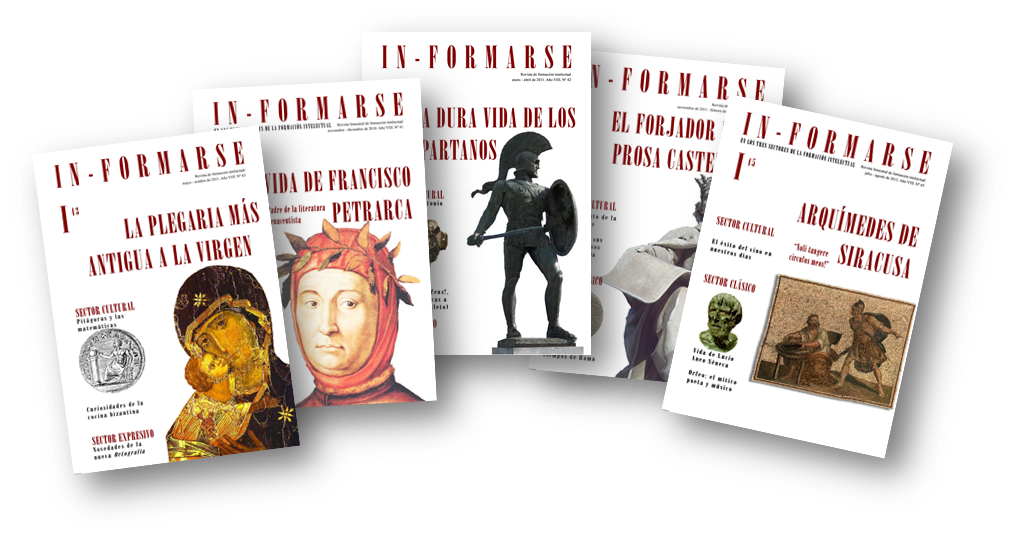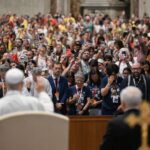In-formarse is an electronic, free magazine with humanistic content and formation in light of the Christian vision of man. The magazine aims to transmit this vision through articles on perennial human values, history, literature, art, philosophy, cinema, among others.
The team that writes, edits, and designs the magazine’s content is composed of several Legionaries of Christ, as well as a consecrated member of Regnum Christi who also collaborates with articles.
Some of the magazine’s writers and columnists recently shared their perspectives, experiences, and expectations when interviewed by the electronic magazine’s coordinators.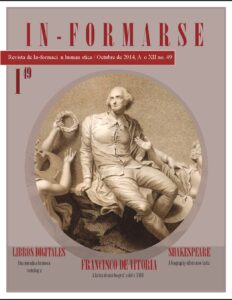
*****
The first to be interviewed were the priests who carry out their pastoral work in Saltillo. Father Antonio Herrero, LC, works at the Instituto Cumbres de Saltillo. He is Spanish by birth and spoke a little about his experiences upon arriving in Mexico:
P. Antonio Herrero, LC: Thirty years ago, I crossed the Atlantic for the first time. Some thoughts came to mind about great cultural navigations: that of Aeneas to Rome, with all that the initial cultural transfer from Greece to Rome entailed; that of Columbus, the daring Genoese adventurer who, unknowingly, laid the foundations of the cultural bridge between Europe and America, no less than that built by Aeneas.
When I arrived in Mexico, I encountered a Latin surprise; moreover, in writing. A newspaper boasted the title of Excelsior. I thought that if Cicero, Virgil, Sallust, or some of their literary colleagues had come with me on the plane, they would have been pleasantly surprised by a newspaper with a familiar title. At first, they would have preferred it over others, just because of the name. Excelsior. Yes, the “somewhat, quite, or too Excellent,” which was how the strict grammar rules of Flores-Penagos instructed to translate that comparative.
Then, a quick look at colonial — or rather, viceroyal — art and much of Mexico’s thought revealed the cultural ties with the Greco-Roman cultural sphere. Language, art, philosophy… Greco-Roman influences continue to nourish all of the West, the two lungs of the West. And we are still in this second decade of the 21st century.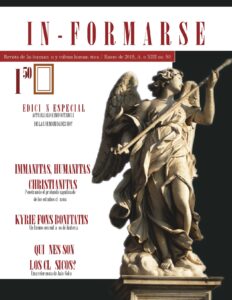
*****
Subsequently, Father Jorge Enrique Mújica, LC, was asked about the humanities and the media.
P. Jorge Enrique, LC: It’s not enough just to know things, I mean, content, nor just to know how to transmit them. It is necessary, on one hand, to have an experience and, on the other, an evangelical reading of the humanities, something that the Legion offers as its own contribution — the ability to read art, enjoy literature, and contextualize the facts, causes, and consequences of historical events.
*****
In the United States, the prefect of studies at the Cheshire novitiate, Father Andreas Kramarz, LC, was asked about the value of the humanities, particularly about the importance of studying history for evangelization.
P. Andreas Kramarz, LC: The French Revolution had some economic causes, for example, unjust taxes and poor harvests; philosophical consequences, such as atheistic Enlightenment; socio-political causes, like the bourgeoisie seeking power. However, few realize the propagandistic effect of paintings by Jacques-Louis David or musical productions like La Marseillaise or the educational novel Émile by Jean-Jacques Rousseau. Only when ideas descend into general culture; only when they become tangible, visible, and close, do they begin to take root in the major sectors of the population.
We can then get an idea of how the humanities provide us with a deeper understanding of the currents and mechanisms of any historical event (including current ones). At the same time, the great value of the humanities does not lie so much in specialization but in the overall vision, in the broad lines of cultural development, seeing how all historical-cultural manifestations are interconnected over the centuries. This vision, of course, is an essential cultural tool for evangelization work in the Legion because it allows us to understand the internal chemistry of the society we want to direct toward Christ.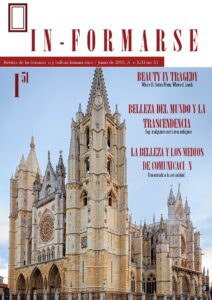
*****
In Spain, at the Universidad Francisco de Vitoria, Monique Villen, a consecrated member of Regnum Christi, works there. Monique loves cinema and often organizes film forums for students. She was asked about the relevance of cinema.
Monique Villen: Because cinema narrates who we are, it narrates our humanity. Cinema inherits this communicative strength from literature. Literary narratives bring us closer to the complexity of human life, communicate experiences, and reveal lives and worlds, using important aspects such as imagination, feeling, or intuition. Cinema receives that “narrative thinking” but does so with an audiovisual story. It doesn’t just tell; it shows. Cinema thus becomes a new way to analyze human life, not in a theoretical, dogmatic, or abstract way, but incarnate, lived, and felt.
Monique has a personal blog (moniquevillen.com/) where she has published several film forums on very diverse movies. She has also written various reflections on the human values of some films for the magazine In-formarse.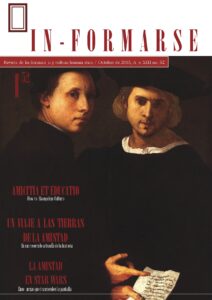
*****
The next stop is Rome, at the Center for Higher Studies. There, the religious Mario Sandoval, Gustavo Arce, and Juan Carlos Piedra, LLCC, are gathered. They are working on the design and layout of the magazine.
In an adjacent room, two religious from North America, Jonathan Flemings and John Studer, LLCC, are also present. They were asked about their experiences with literature and how it has helped them in their formation:
H. John Studer, LC: I believe we all enjoy a well-told story. It entertains us. But I also believe that good literature allows us to transcend and discover more serious things about ourselves. A novel, a poem, a movie, or a good play always has a question about man behind it.
H. Jonathan Flemings, LC: During my humanistic studies, perhaps the most important lesson I learned was that when analyzing art, music, poetry, cinema, etc., it’s not about the art itself. It’s about the artist. Art is a language, and like any language, what matters is the person who speaks and what they have experienced and want to transmit, not the words themselves. What matters is the heart behind that work and the experience it communicates.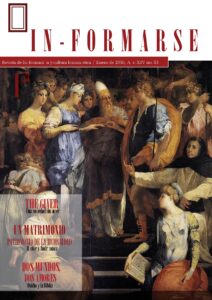
*****
The magazine In-formarse has many more collaborators, as can be seen in the indexes that appear on the download page: http://www.regnumchristi.org/es/publicaciones/in-formarse/. The other columnists are: Father Louis Desclèves, LC; religious Eric Gilhooly, Ismael González, Alejandro Páez, John Kim, Luis F. Hernández, LLCC. Father José Enrique Oyarzún, LC; Father Davi Abad, LC; Father Walter Schu, LC, and some lay professors from the Humanities Center in Cheshire, CT, have also contributed occasionally.
The In-formarse team publishes four issues a year, most of which are on a single theme. The last four have been about the Humanities, beauty, friendship, and love between man and woman. The most recent one published is about mercy.
To subscribe to the magazine, you can send an email to: in-formarse@outlook.com



